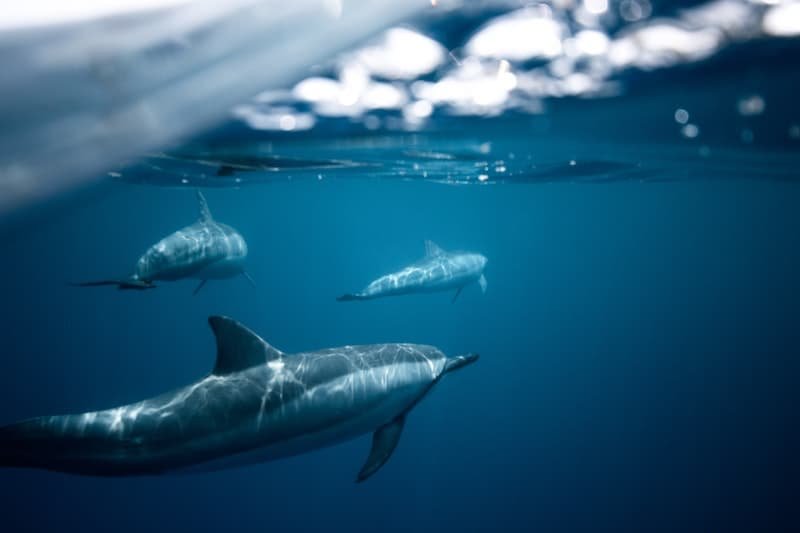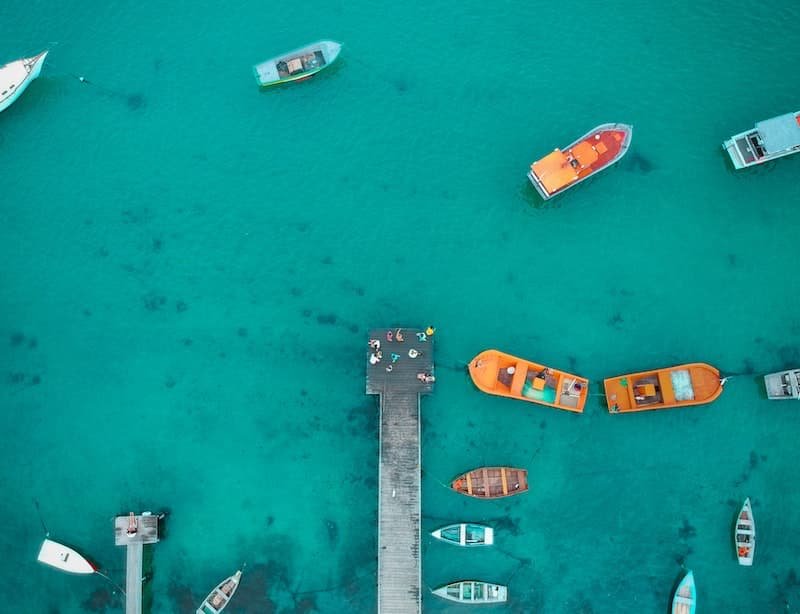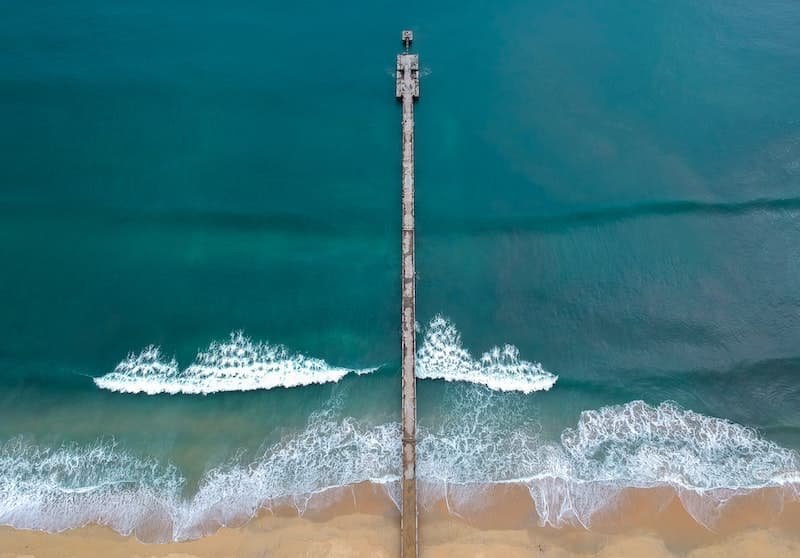
 Katie Wood
Freediver, Writer, Explorer
Katie Wood
Freediver, Writer, Explorer

 Katie Wood
Freediver, Writer, Explorer
Katie Wood
Freediver, Writer, Explorer
For millennia, the boundless oceans have bestowed bountiful resources upon humanity, serving as a source of sustenance, commerce, and inspiration. However, this historical abundance has come at a grave cost to our planet's aquatic ecosystems. Overfishing, pollution, and habitat degradation have left indelible scars on our oceans. In response to these pressing challenges, the concept of the "blue economy" has risen like a beacon, offering a hopeful path towards reconciling economic growth with ocean conservation. Let's dive into the blue economy, unraveling its underlying principles, potential rewards, and the formidable obstacles it confronts.
The blue economy, a visionary concept, as articulated by the World Bank, seeks to harness the vast economic potential of oceans while championing their long-term well-being and sustainability. It serves as a clarion call for responsible stewardship of our aquatic domains and envisions oceans not as a limitless resource but as a finite treasure deserving of our protection and reverence. Anchored in the ethos of the blue economy are several fundamental principles:
a. Sustainability: At its core, the blue economy champions sustainable management of ocean resources. According to data from the Food and Agriculture Organization (FAO), a staggering 90% of the world's fish stocks teeter on the brink of over-exploitation. This underscores the critical importance of sustainable practices to ensure the legacy of seafood for generations to come.
b. Innovation: Pioneering advancements in sectors such as renewable energy, aquaculture, and marine biotechnology are cornerstones of the blue economy. A report by the International Renewable Energy Agency (IRENA) highlights offshore wind energy as a beacon of hope for both economic growth and environmental preservation.
c. Inclusivity: The blue economy is dedicated to uplifting coastal communities by providing equitable opportunities for employment and economic development. The United Nations Development Programme (UNDP) underscores the necessity of rectifying social disparities and ensuring that the benefits of the blue economy reach all.
d. Collaboration: Effective ocean management hinges on harmonious collaboration among governments, industries, and conservation organizations. The safeguarding of our oceans demands a united global front, as exemplified by the Ocean Panel—an alliance of 14 nations—working collectively to advance sustainable ocean policies.

One of the most compelling aspects of the blue economy is its potential to catalyze economic growth. As reported by the Organization for Economic Co-operation and Development (OECD), the ocean economy is poised to double its contribution to global value-added GDP by 2030, an estimated $3 trillion surge. The blue economy stands poised to birth a multitude of employment opportunities, especially in coastal communities. According to estimations by the World Wildlife Fund (WWF), the global fisheries and aquaculture sector presently sustains over 59 million livelihoods, with many intricately linked to the ocean.
The blue economy propels investments into cutting-edge technologies and research. Innovations spanning marine biotechnology, ocean energy, and sustainable aquaculture not only propel economic growth but also offer ingenious solutions to our planet's most pressing challenges. The European Commission's Blue Growth Strategy points to the undeniable role of innovation in shaping the blue economy's trajectory. By emphasizing the imperative of responsible resource management, the blue economy paves the path towards safeguarding critical resources such as seafood. A study published in the journal Nature illuminates the tremendous potential for fish populations and ecosystems to recover through effective fisheries management.

Perhaps the most formidable foe of the blue economy is the scourge of overfishing. Unsustainable fishing practices have depleted fish stocks across the globe, jeopardizing both the industry and the marine ecosystems dependent on them. According to FAO data, a staggering 33% of fish stocks are currently overfished. Marine pollution, particularly the pernicious proliferation of plastics, casts a long shadow over oceanic health. Data from the Ellen MacArthur Foundation paints a grim picture: by 2050, there may be more plastic than fish in our oceans if present trends persist. Tackling this menace necessitates robust waste management, recycling initiatives, and the relentless pursuit of alternatives to single-use plastics.
The peril of climate change looms large, bringing with it rising sea levels, ocean acidification, and increasingly frequent and severe storms. These cataclysmic changes imperil coastal communities and industries that cling to the ocean for sustenance. The Intergovernmental Panel on Climate Change (IPCC) underscores the mounting challenges posed by climate change on the world's oceans. Effective execution of the blue economy blueprint hinges on robust governance and international cooperation. This entails forging agreements on fishing quotas, pollution control, and the establishment of marine protected areas. These endeavors, as exemplified by the United Nations Convention on the Law of the Sea (UNCLOS), are fraught with complex political and regulatory hurdles.

Norway's saga of successful blue economy implementation serves as a beacon of hope. Through meticulous fisheries management, the nation has safeguarded healthy fish stocks while nurturing a thriving seafood industry that exports its products to every corner of the globe. The FAO lauds Norway's unwavering commitment to responsible fisheries management practices. The Seychelles, an island nation inextricably tied to its oceans, has orchestrated a groundbreaking debt-for-nature concerto with international organizations. This innovative overture reduced the nation's debt burden while harmoniously entwining its future with marine conservation efforts. The Nature Conservancy extols this symphony as a model for debt restructuring with a conservation conscience. Denmark, a luminary in the realm of offshore wind energy, has choreographed a mesmerizing ballet of renewable energy. By investing in this eco-friendly energy source, the nation has not only minimized carbon emissions but also choreographed a ballet of job creation and economic growth. The European Wind Energy Association provides a symphony of data to showcase the crescendo of offshore wind energy's rise in Europe.

The blue economy, adorned with immense promise, offers a kaleidoscope of possibilities for harmonizing economic prosperity with ocean conservation. It is a vision that promises myriad benefits, yet it stands besieged by formidable challenges that demand our collective resolve. Through inventive strategies, robust governance, and a unity of purpose, the blue economy can illuminate the way towards a future where our oceans, forever nurturing and awe-inspiring, continue to provide for humanity while flourishing in their natural splendor. The voyage ahead beckons us to make choices and take actions that place the health of our oceans and the legacy of generations yet unborn at the forefront of our journey.
Sources
- World Bank (2021). The Blue Economy
- Food and Agriculture Organization (2020). The State of World Fisheries and Aquaculture 2020
- International Renewable Energy Agency (2020). Offshore Wind Power: Opportunity at Sea
- United Nations Development Programme (2018). Scaling Up the Blue Economy in Seychelles
- Organization for Economic Co-operation and Development (2016). The Ocean Economy in 2030
- World Wildlife Fund (2021). Fisheries
- European Commission (2012). Blue Growth: Opportunities for Marine and Maritime Sustainable Growth
- Nature (2020). Rebuilding Global Fisheries
- Ellen MacArthur Foundation (2016). The New Plastics Economy: Rethinking the Future of Plastics
- Intergovernmental Panel on Climate Change (IPCC) (Various Reports)